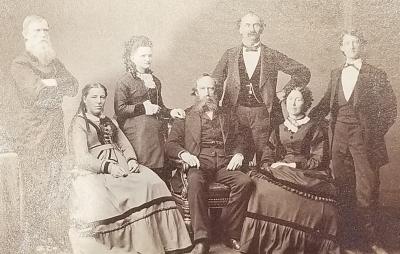From the Archive: A Family of Reform

If Stephen Pearl Andrews had never been, there would have never been the village of Modern Times. If Modern Times had not been, there would have never been Brentwood.
Why did Andrews find himself at the center of such an extraordinary development, a village planned to test new concept for organizing a new social order? It was because he was a man of ideas. Not just a creator, but a supporter of the ideas of others. Any idea Andrews thought might improve the lot of humankind he championed. All those movements and principles and formulations that made up reform, he was a magnet for.
In Texas, he had been a lawyer who fought against the expansion of slavery and promoted abolition. In New York, he popularized shorthand and phonetics, believing that systems of simplifying spelling, reading, and allowing speedier writing, would empower groups for whom literacy had been previously been out of reach. Later in life he wrote speeches for the first woman to run for president.
Even the Andrew’s family portrait in the collection of the Brentwood Library is a who’s who of reform.
Stephen Pearl’s wife Esther, was a professional spiritualist (which at the time was considered a scientific religion of the future). Brother-in-law Theron Leland, was a noted phonographic reporter, radical, and liberal writer, while Theron’s wife Mary was a suffragist who wrote articles for Susan B. Anthony’s newspaper The Revolution. Even son-in-law George McDonald, was publisher of the Truth Seeker, the most radical periodical of the day.
Among all of Andrew’s ideas, though, the one that most shaped Modern Times into the bastion of free-thinking it would become was one he called sovereignty of the individual. This was a sort of proto-anarchism based on the idea that people should not be constrained by moral strictures but only guided by individual conscience. His book, The Science of Society, argued that all of civilization had been evolving towards greater and greater liberty and would one day culminate in complete individual freedom.
It was only when he met another man, Josiah Warren, quieter but more practical and in some ways more inventive than Andrews himself, would a Utopia of complete individual sovereignty would become a real-life possibility.

